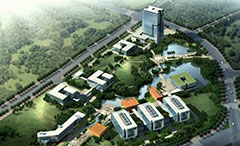China’s high-tech zones lead innovation development
2018-01-04
english.gov.cn/Guangming Daily
According to a recent assessment report on the innovation of high-tech zones, which are a critical driver of China’s innovation and economic growth, they have been making substantial progress in its third phase of vigorous development.
The lump sum of GDP attained by 147 high-tech zones reached 8.98 trillion yuan ($1.38 trillion) in 2016, representing 12.1 percent of the corresponding overall national figure. Meanwhile, the figures for their total expenditures on research and development are 554.47 billion yuan, 35.8 percent of the total number in the country, said Liu Huiwu, a researcher on high-tech development zones at the Chinese Academy of Sciences.
Continuous improvements in high-tech zones’ innovation
The overall innovation index of the high-tech zones was 199.1 points in 2016, up over 10 percent year-on-year. In the meantime, there was also a remarkable rise in their internationalization index in innovation, which was a sound demonstration of the considerable progress China’s high-tech zones made in opening-up and international cooperation, against the backdrop of an all-around implementation of the Belt and Road Initiative.
Additionally, the number of innovation entities led by high-tech enterprises in 2016 saw a 31.3 percent year-on-year rise; the figure of newly registered enterprises situated in high-tech zones was 298,000 in 2016, up 28.6 percent year-on-year.
It’s also worth noting that the platform for mass entrepreneurship and innovation is also gaining persistent momentum, featuring 1,701 business incubators established in high-tech zones in 2016, up 23.4 percent year-on-year.
Nationwide implementation of innovation-driven development strategy
Upgraded high-tech zones have been gaining momentum since 2010. The soaring innovation index of 90 upgraded zones witnessed a 14.7 percent average year-on-year increase in 2016. With 2nd and 3rd-tier high-tech zones catching up, China’s innovation-driven development strategy came into play on a national scale.
As the report shows, the implementation of an innovation-driven development strategy in high-tech zones is in full swing across the board, highlighting a robust revival in China’s northeast and western regions, which greatly enhanced the balance in innovation development among different regions.
More international-level indexes
According to the report, about 50 percent of the employees hold a bachelor’s degree or above in the high-tech zones of Xi’an, Beijing, Chengdu, and Shenzhen, which obtain parity with world-class high-tech zones. The figures in Xi’an and Shanghai even surpassed Silicon Valley.
China will go all out to push forward the innovation and development of high-tech zones, said Liu.


